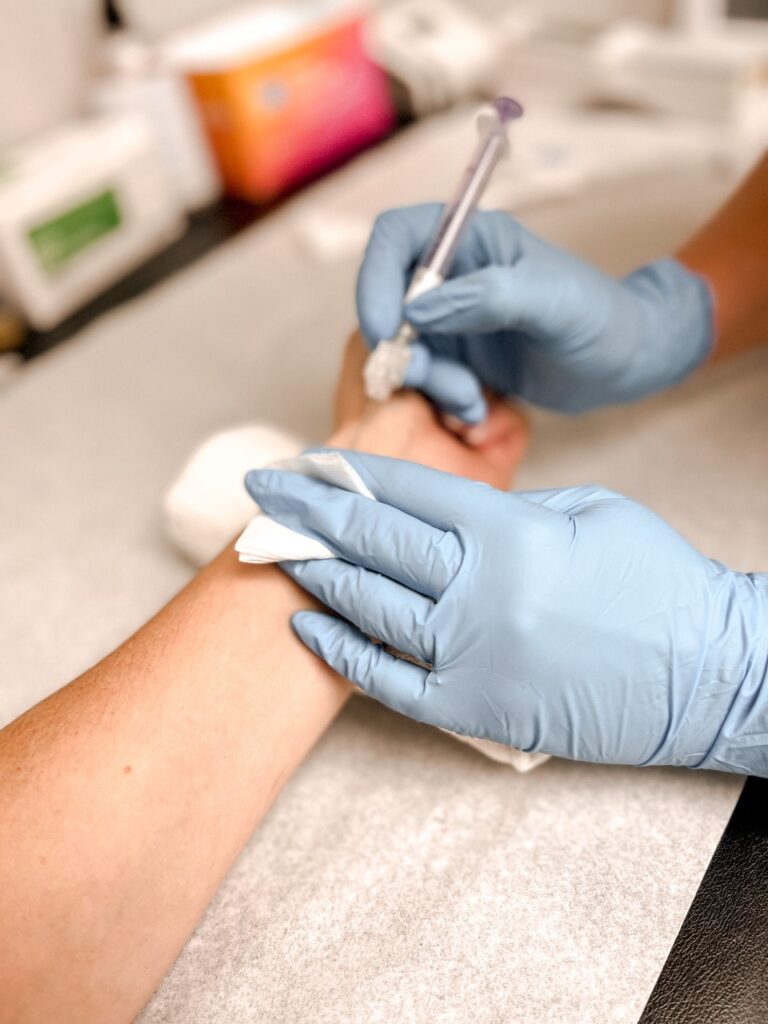
Arterial blood gas tests are an effective diagnostic tool. Healthcare providers also use this test to monitor certain health conditions.
An arterial blood gas (ABG) measures the acidity (pH) and the levels of oxygen and carbon dioxide in the blood from an artery.
Why do I need an ABG.
This test is used to find out how well your lungs are able to move oxygen into the blood and remove carbon dioxide from the blood. Blood for an ABG is taken from an artery and is performed by a Respiratory Therapist. Your doctor may request an ABG to:
- Assess your breathing / severe lung conditions such as asthma, chronic obstructive pulmonary disease (COPD) or obstructive sleep apnea (OSA)
- Evaluate the effectiveness of treatments for your lung conditions
- Assess the need for oxygen therapy
How to prepare for your ABG.
Please inform the Respiratory Therapist of any prescription medications you might be taking, more specifically, if you are on blood thinners. If you are on supplemental oxygen therapy, it is recommended you bring it with you to your appointment. In some circumstances, your supplemental oxygen will be turned off for 20-30 minutes before the sample is drawn. This is called a room air test.
What to expect.
For an arterial blood gas test, a respiratory therapist will take a sample of blood from one of your arteries. This is because there are higher oxygen levels in the blood from an artery than blood from a vein. A respiratory therapist usually takes the sample from an artery inside your wrist known as the radial artery. ABG results are obtained within a few minutes time.
“I was greeted with a smile upon entering, and even though I showed up half an hour early for my appointment I was still taken in. The testing was done quickly and efficiently, the therapist was very kind and patient with me. The tests went quickly and seamlessly and I would definitely not hesitate to go there again! Thank you!“

